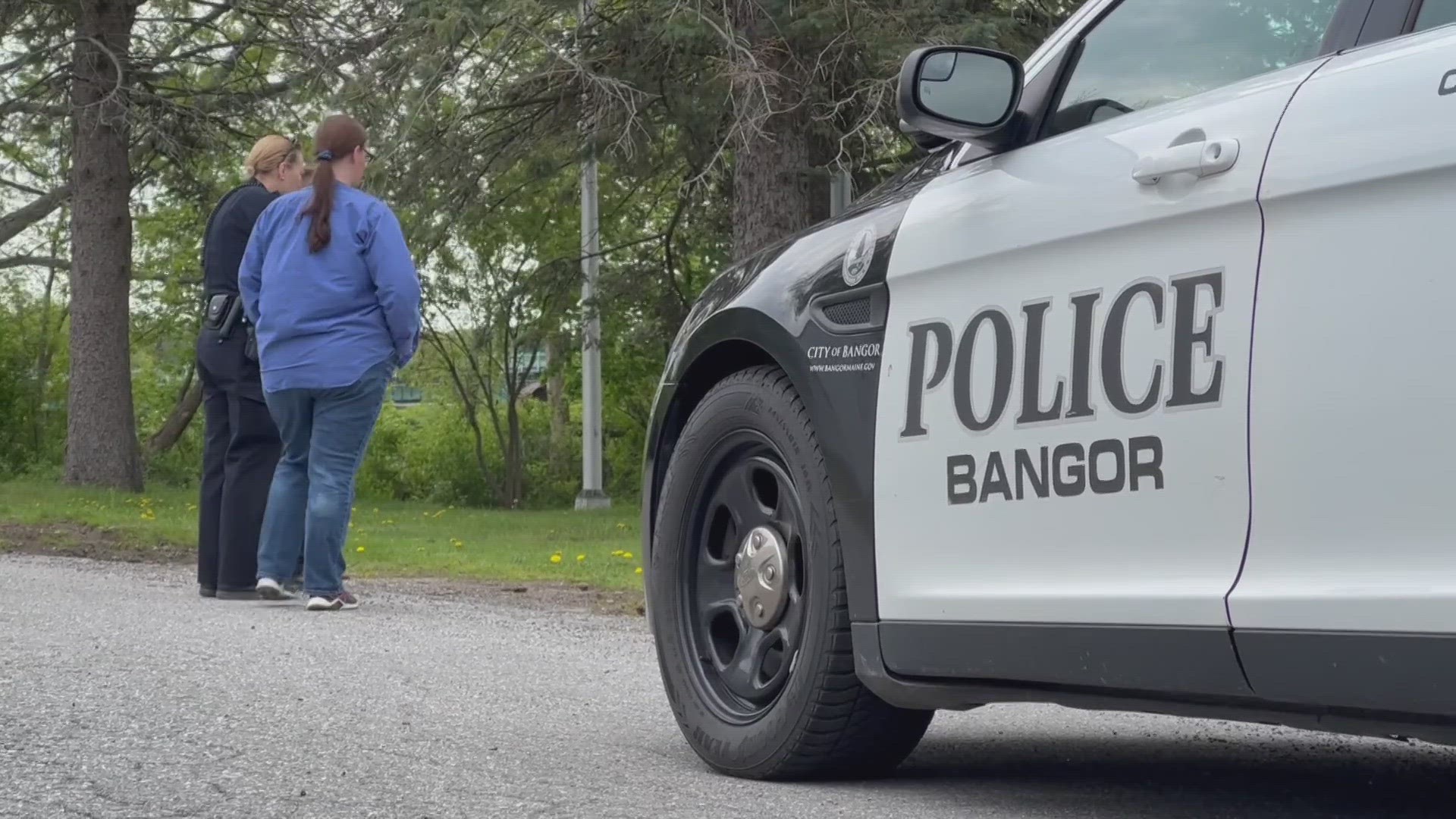BANGOR, Maine — Police departments across Maine are dealing with record-number of mental health calls. Some police departments have created positions within the department for people trained to handle crisis situations.
The Bangor Police Department partners with Northern Light Acadia Hospital to staff two liaisons who are licensed social workers to help the department with crisis calls, for which police officers aren't specifically trained.
This year alone, the two liaisons have responded to nearly 250 calls combined, according to Jason McAmbley, public information officer for the Bangor Police Department.
"We're dealing with people in crisis on a regular basis," McAmbley said. "There's a lot more that we're doing now that is social work and police work, and so we need social workers, because that's not us."
In 2022, the Bangor Police Department received more than 800 emotionally disturbed persons, or EDP, calls, McAmbley said.
Annie Collins has been a Bangor Community Police mental health liaison for the past year.
"We have connections with people at different agencies to say, 'Hey do you have any openings?' to know where the shortest waitlists are for people. That's not something one of the patrolmen are going to have time for," Collins said.
Collins said that while she does what she can in the field to get people experiencing a mental health crisis the help they need, one huge barrier is wait lists for these services in the area.
"A lot of people when they have a need, and they're finally at the point where they say, 'I need help here,' and when I go, 'That's great. I can put in the referrals for you. It's going to be months before they can open with you.' And that's really defeating, because people need that in the moment."
However, while some people can't get immediate services, having liaisons like Collins helps de-escalate situations and get people in touch with resources.
"They [liaisons] can solve a problem right there in the field, frequently. Sometimes we have to take them [person in crisis] to the hospital. Sometimes we have to take them to jail," McAmbley said. "A lot of times we don't because the mental health case workers."

